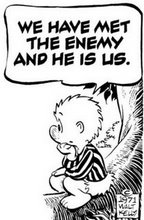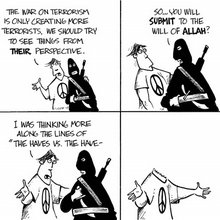 "JUST HITTING ANOTHER
"JUST HITTING ANOTHER
BRICK WALL"
 Gen. Franks Squarely Behind
Gen. Franks Squarely Behind

The FOLLOWING IS AN EXCLUSIVE INTERVIEW THAT NEWSMAX REPORTER, DAVE EBERHART, HAD WITH GEN. FRANKS:

General Tommy Franks, the former Commander-in-Chief of U.S. Central Command who led
"The reason that I say this is a good idea is because that's what the leaders on the ground are saying," says Franks, speaking from
As head of the U.S. Central Command, Franks oversaw American military operations in a 25-country region, including the
Franks, 61, was the
In a free-ranging exclusive interview, Franks set the record straight on the surge and a host of thorny subjects, and revealed the following about President Bush and his administration:
President Bush was never in a rush to invade
Bush was always a good leader – calm, studious and deliberative – and was never steam-rolled by his top advisors, but was always his own man.
Former Secretary of Defense Donald Rumsfeld is getting a bum rap.
No administration would have allowed
There was plenty of planning and preparation for post-invasion operations in
There is a definable limit to what the
The Walter Reed hospital debacle resulted from "failed leadership."
NewsMax: I was talking to a young 1st Sergeant fresh back from
Gen. Franks: I think you will find beyond the 99th percentile of the youngsters serving there would tell you the same thing. My son-in-law [an Army captain] is in
People ask me all of the time, do you think we ought to send more people, and I say of course I do, because the leaders that we have selected to run this operation in Iraq have said they would like to have an additional 20,000 troops.
The reason I say this is a good idea is because that's what the leaders on the ground are saying. If the leaders on the ground were to say we don't need additional troops, then I would say great, we don't need additional troops, because I have confidence in the men and women who are serving on the ground over there and leading our troops. I have confidence today, and I have had it all the way through this process.
NewsMax: A misconception about George Bush as Commander-in-Chief may be how anxious he was to go to war against Saddam Hussein in
Gen. Franks: I find that very interesting because we have all read that same sort of view of Bush wanting desperately to get into
The first time the President talked to me about
I believe he was very doubtful in the run-up to
NewsMax: How about Secretary of Defense Donald Rumsfeld standing down from his post?
Gen. Franks: We need to be very careful as Americans not to confuse patriotism with political expediency. What I mean is it makes sense to me that Don Rumsfeld left the post as Secretary of Defense.
When he did, I didn't question that decision at all, but I do question those who say he was a terrible Secretary of Defense, because I did not find that to be the case. I told a lot of people Don Rumsfeld is a contrarian.
When he was the Secretary of Defense, he was very tough on himself and on everyone around him. I have also described him as a crotchety guy, and he is just tough to deal with. I have also told a great many people that Don Rumsfeld is a friend of mine. I still talk to him, and on occasion when [wife] Cathy and I are in
The guy is an American patriot. He was an American patriot. He is just a touchy guy to get along with.
NewsMax: As a
Gen. Franks: In my view, I was successful in avoiding that. I found that it was distinctly possible with a tough issue to take a stand with this administration – specifically with Don Rumsfeld when he was the Secretary – and debate an issue, lay the facts out, discuss an issue.
This is what Rumsfeld used to call "iteration" before arriving at a course of action. In no case did Rumsfeld ever throw me out of his office. In no case did Rumsfeld ever tell me, General Franks, it is my way or the highway.
NewsMax: Let's talk about President Bush's leadership traits. You have consistently complimented the Commander-in-Chief, calling him a "true leader.”
Gen. Franks: I commented that way while I worked for George W. Bush and I still comment in that fashion. I think it takes a variety of things ... when we think about whether our presidents have been great leaders or good leaders or not very good leaders.
I think that there are a couple of interesting ingredients - one is just what you see every day. We see constant dialogue on our television sets, and in the newspapers we read every day about the views as to whether this president is a good president or bad president. But I think historians have a much more in-depth approach.
As we go through history and people look at the present administration, the factor that will always play into it is the context within which this president had to lead the country. You and I both know, if you think about the events of 9/11 and this attack on
As I have told a great many people, I am neither Democrat nor Republican. In fact, I am a registered Independent. I have been so and foresee that I will stay that way. But I do respect the work that this president has done during a very, very difficult period of American history.
NewsMax: I hope the recent disclosure of failures at
Gen. Franks: Of course. As I look around and see these kids coming back in many cases very seriously injured, requiring hospitalization and a great deal of medical work, the thought that any given one of them or their families are not treated the way I would want my daughter and my son-in-law who is in the military treated – I find that hurtful.
NewsMax: Is it a misconception that there was no proper planning for post-victory in
Gen. Franks: Right.
NewsMax: You have commented that during your time as a young junior officer in
Gen. Franks: The type of refuge I wouldn't tolerate actually concerns a couple of different levels. First the strategic:
If you were the President of the United States before 9/11, it is possible for you to simply live with what was going on in Iraq ... The fact of the matter is that Iraq was a sanctuary we were unable to penetrate, despite the fact that we sanctioned Iraq. You will recall that our young men and women were enforcing those sanctions for almost 10 years, and they were getting shot at every morning and every night, but none of them had been shot down, so it was possible to ignore that sanctuary during this period of time.
When 9/11 occurred, now what is the likelihood that any administration in power in this country - no matter which side of the aisle - could have ignored
So at the level of the strategic, that may be a match for having
Now, as we look at
I think that
It would be great if the liberals would listen to what General Franks has to say. Unfortunately, even if they did, they would never agree, and that is a shame.

“Abouna” Gregori













|